Once a year for a week at the end of February and beginning of March, the Tour du Rwanda bicycle race takes over the roads throughout the country causing transportation to come to a halt, sometimes for hours, to let the racers pass.


Above are official photographs of this exciting race. I’ve been lucky (or perhaps unlucky) to get photos of both the 2018 and 2019 Tours du Rwanda because coincidentally each year during the race I’ve been on a bus going from my town to the capital city when the police closed the road for hours so that the Tour du Rwanda cyclists could safely pass. Below are some of my photos.
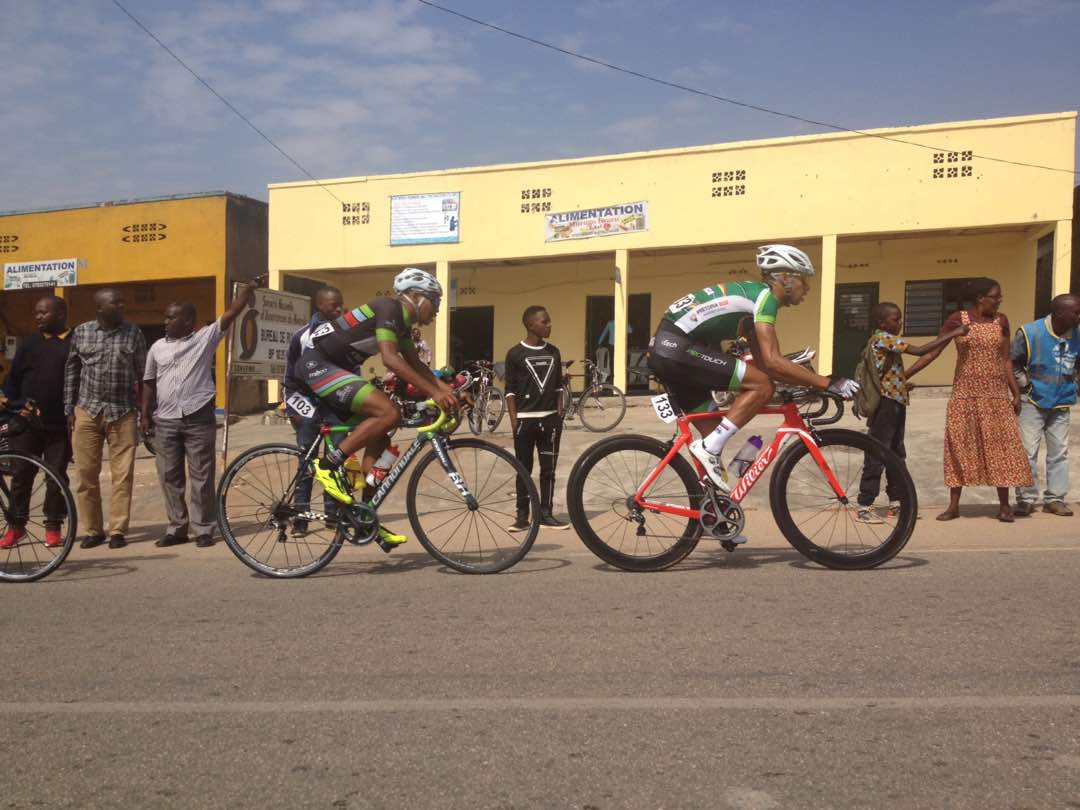
But, the rest of the year, bicycling is not a competition, not a sport, not for leisure or exercise. Rather, bicycling is a business, a job for the thousands of Rwandans who ride their bicycles every day to earn a living transporting people or things.
For a a hundred francs (12 1/2 cents) and up, anyone can hop on the back of a bike and get a ride to wherever they need to go in town. (For longer, faster rides, people pay more to ride on the back of a motorcycle-taxi.) The bicycle taxis are ubiquitous, sharing the road with overloaded trucks, buses, speeding SUVs, cars, motorcycles, pedestrians and occasional goats and chickens. To attract customers, the bicycle drivers often paint their bikes in flashy colors and add a cushioned seat over the back fender as well as a handle for the passenger to hold onto so that the passenger can ride in luxury.
Sometimes, there are so many bicycle-taxis that I have trouble crossing the street in front of my school. I often see well-dressed women (some with babies on their backs), sitting casually side-saddle texting on their cell phones as the driver struggles pedaling uphill.
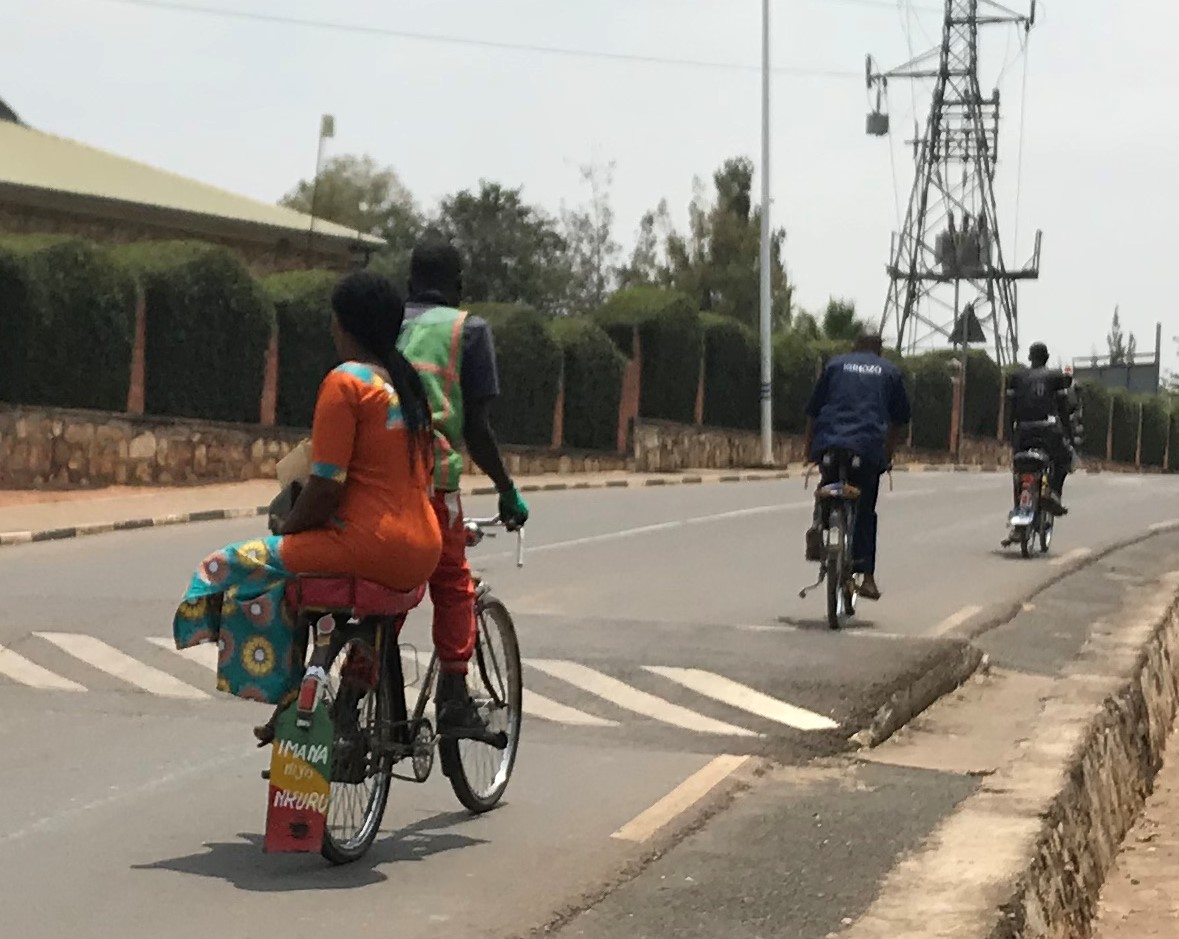
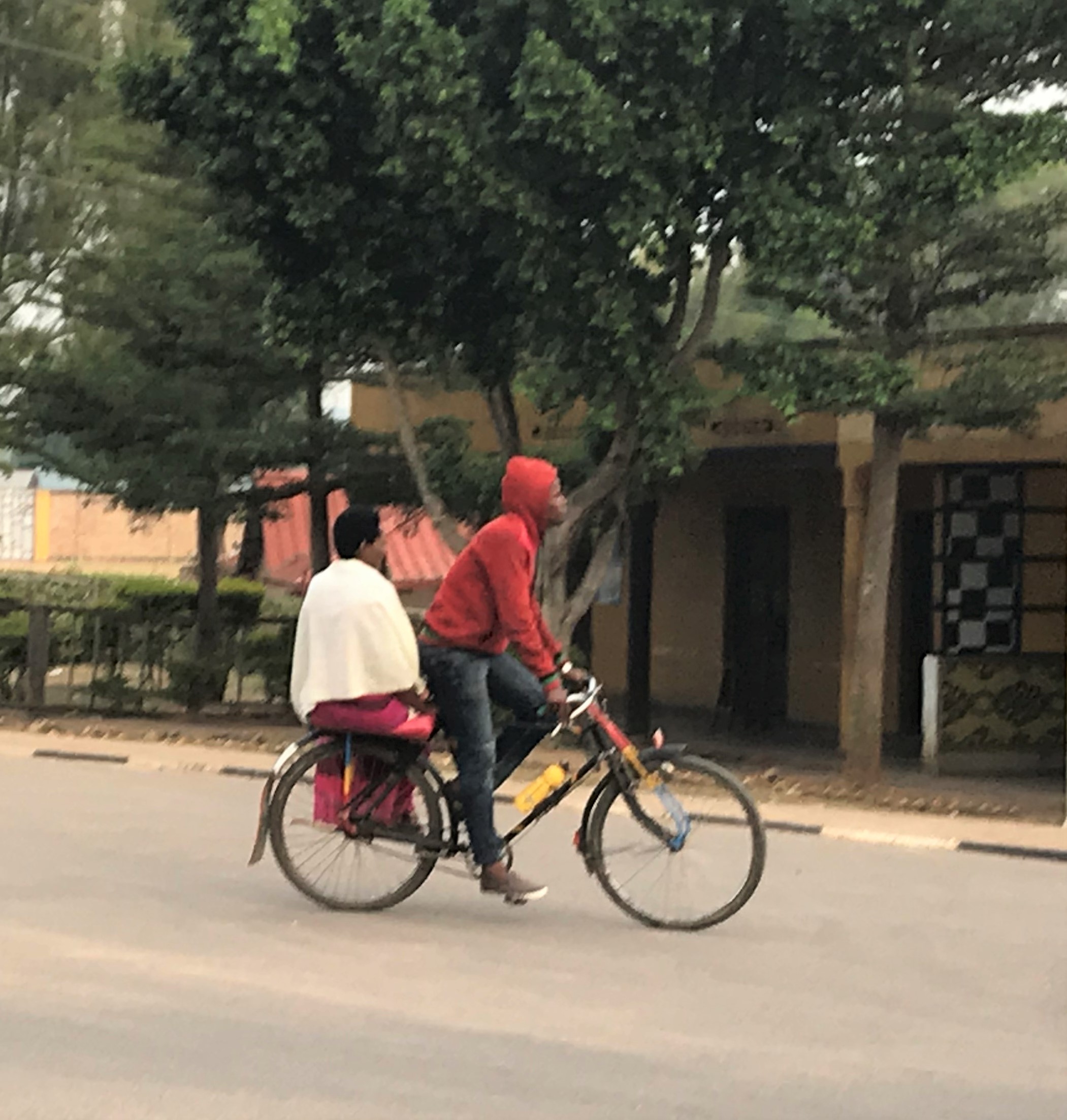
This is my 31-year old friend, Charles, transporting a passenger past some small shops. In the morning, the streets are busy with the bicycle taxis transporting small children in their smart neatly pressed blue or green school uniforms to school. I always get nervous when I see those children turn and release their tiny hands from holding onto the bike to smile and wave at me.
Helmets? Forget it; nobody (not driver or passenger) wears a helmet on these bicycles.
In addition to transporting people, the bicycle taxis haul enormous heavy loads from place to place. The transported freight is often so cumbersome that the bicyclists seem to defy gravity by staying upright. I often see them transporting furniture and mattresses.

 And, bicycling in Rwanda is hard work. Rwanda is HILLY. Unlike Buck’s County, Pennsylvania’s rolling ridges, Rwandan hills are everywhere and in no order. The uphills are a strenuous workout, and the downhills are exhilarating and even harrowing – especially when there is a speed bump strategically placed at the bottom of a hill.
And, bicycling in Rwanda is hard work. Rwanda is HILLY. Unlike Buck’s County, Pennsylvania’s rolling ridges, Rwandan hills are everywhere and in no order. The uphills are a strenuous workout, and the downhills are exhilarating and even harrowing – especially when there is a speed bump strategically placed at the bottom of a hill.
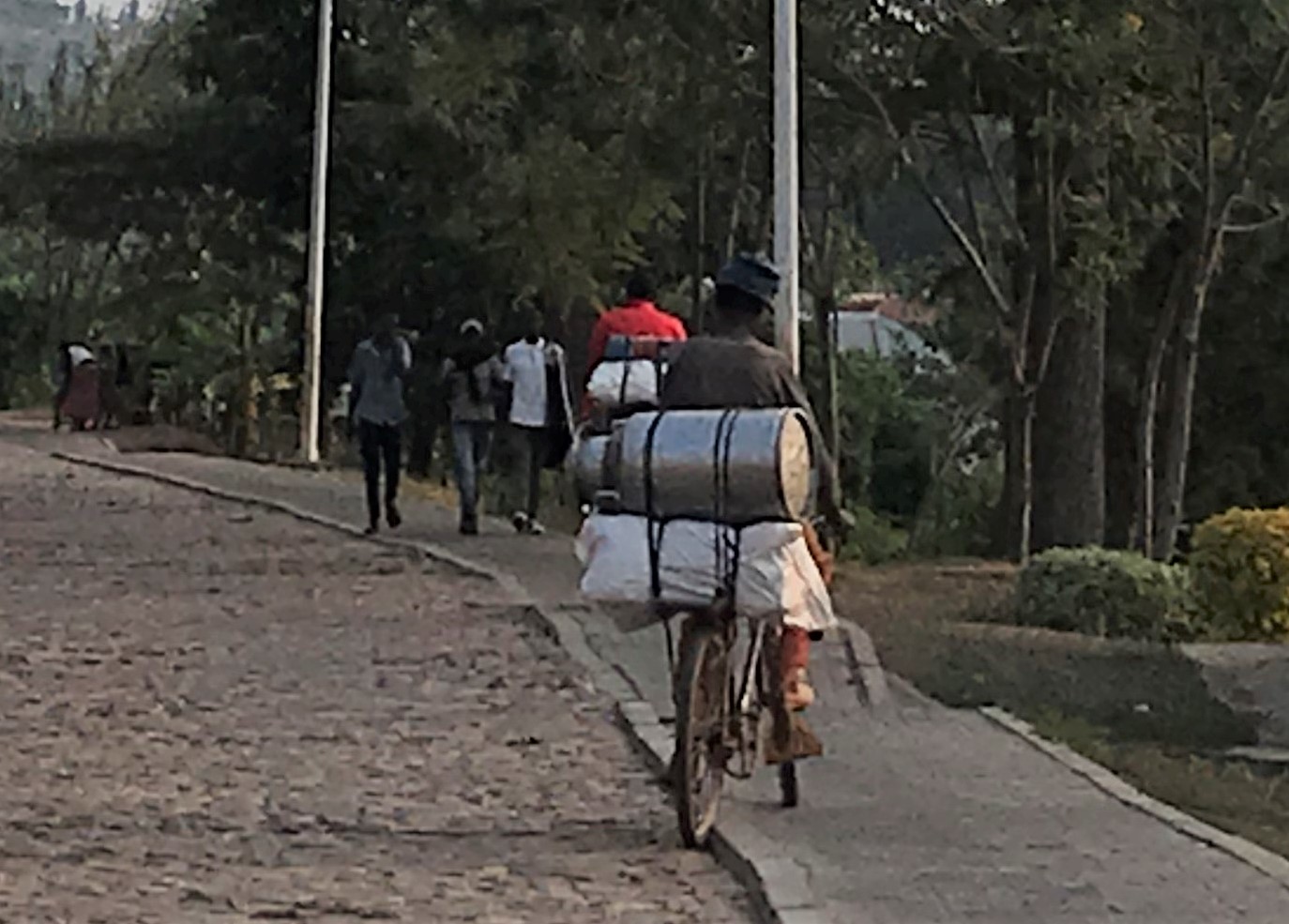
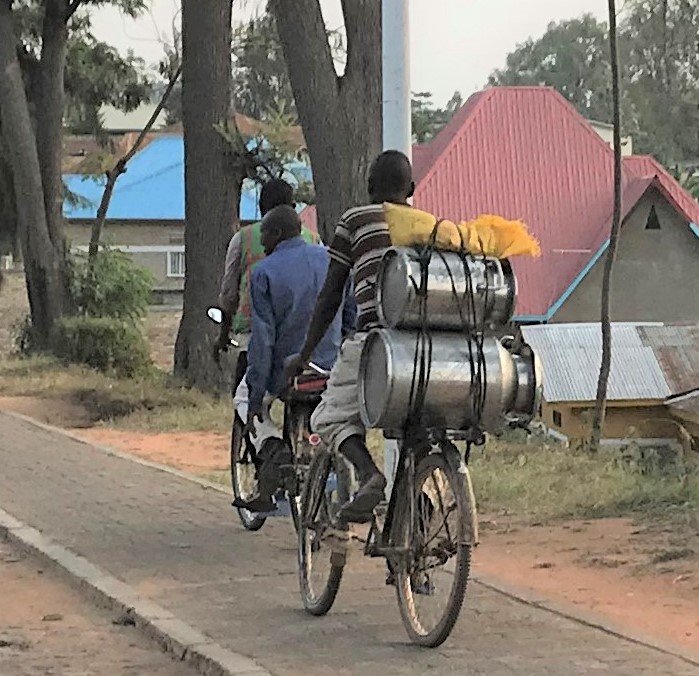
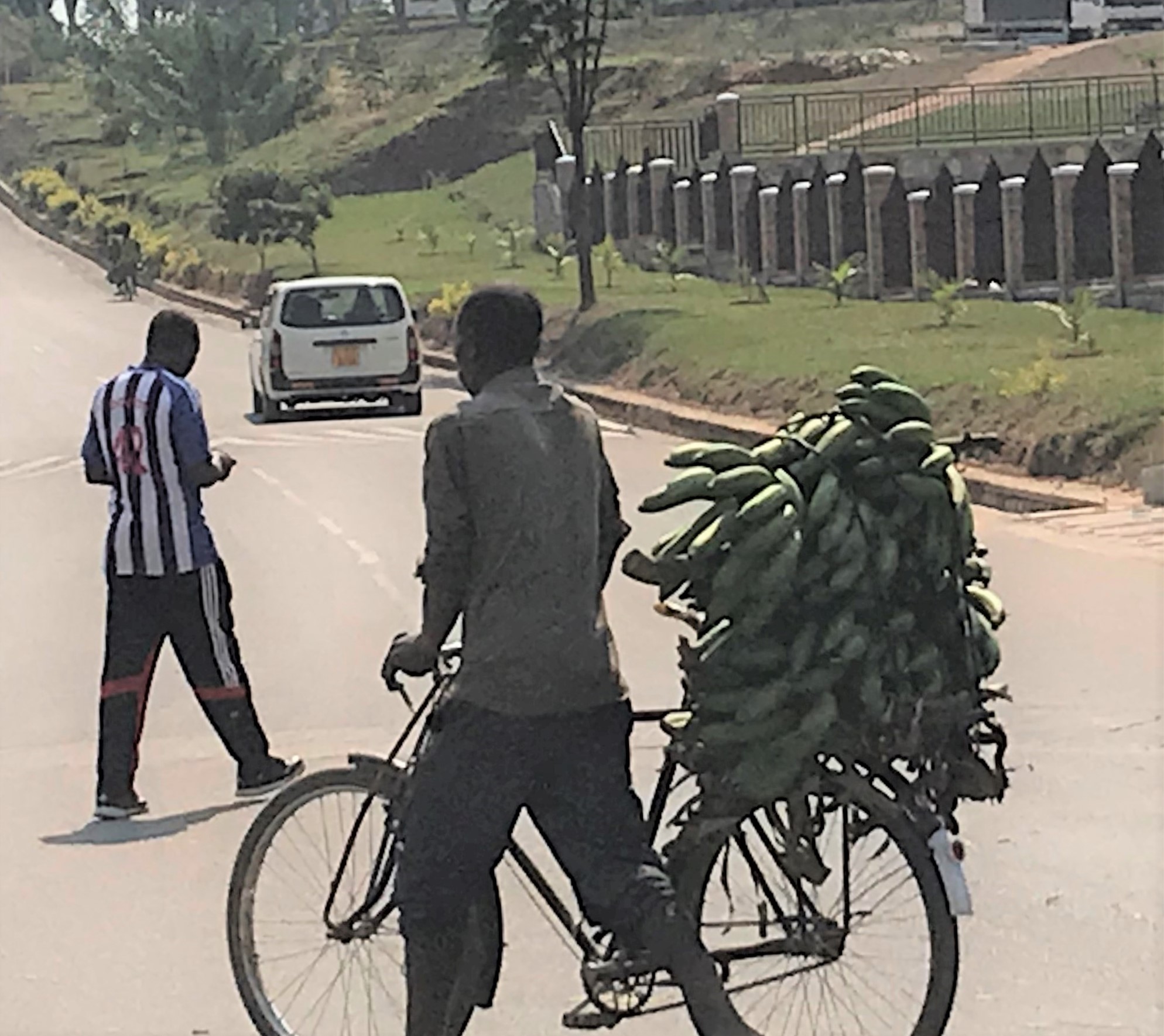
Carrying heavy loads or passengers up the hills is a challenge, so often half-way up the hill, the cyclist stops and walks the bike to the top of the hill where he resumes riding.

Bicycle-taxi-drivers transport foodstuffs and Rwanda’s famous milk in the large dairy cans to the many small shops around Nyanza. This side road is called the stony road because it’s cobblestone. It’s so bumpy that the bicycle-taxis ride on the sidewalk instead. I often have to jump out of the way when a bicycle taxi comes up behind me.
They also carry cases of beer and bottles of soda to the many bars and shops around town.
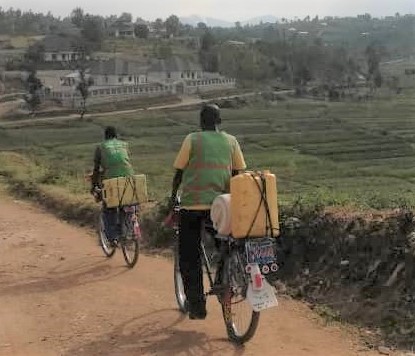 And, they ride up and down on steep dirt trails in and around town.
And, they ride up and down on steep dirt trails in and around town.
All of the bicyclists that I have seen in Rwanda are guys. However, there’s no reason why a cyclist can’t be a “she,” except perhaps culture, as Rwandan women are quite strong and agile from doing farm work and carrying babies on their backs.
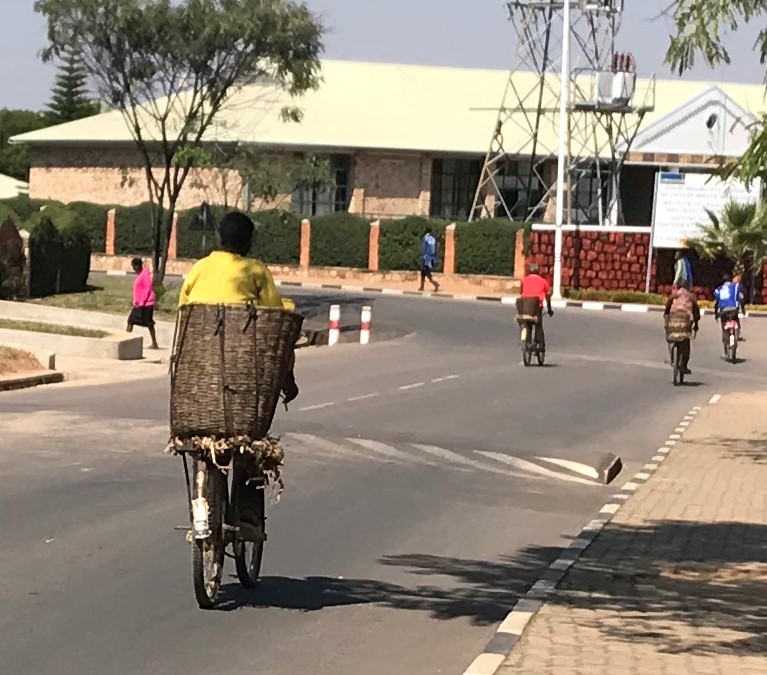
Accidents? I’m sure there are plenty. However, I’ve never actually seen one, but I did see the aftermath of one. A cyclist carrying a large bag of beans hit a speed bump too fast or at a wrong angle. Bike and cyclist were ok, but the beans were all over the road. Because of a fear of accidents, Peace Corps does not allow volunteers to ride the bicycle-taxis, which has made for many a disappointed bicycle-taxi-driver hoping to get me to take a ride. When I first arrived, they often came up next to me and slowed down, riding next to me and offering me a ride. I always shook my head and said, “Oya, ariko murakoze.” (No, but thanks.) So eager are some for my business that they have even offered to give me a ride for free. But, alas, I can’t take them up on their offers and instead say, “Ndkunda kugenda,” meaning “I like to walk.”

The bicycle taxi drivers belong to a guild. They all wear matching green or blue vests. At Umuganda, the mandatory monthly work, they ride their bicycles to the worksite and park them together, then participate in the community physical labor with the rest of us. Not surprisingly, they are usually the strongest workers.
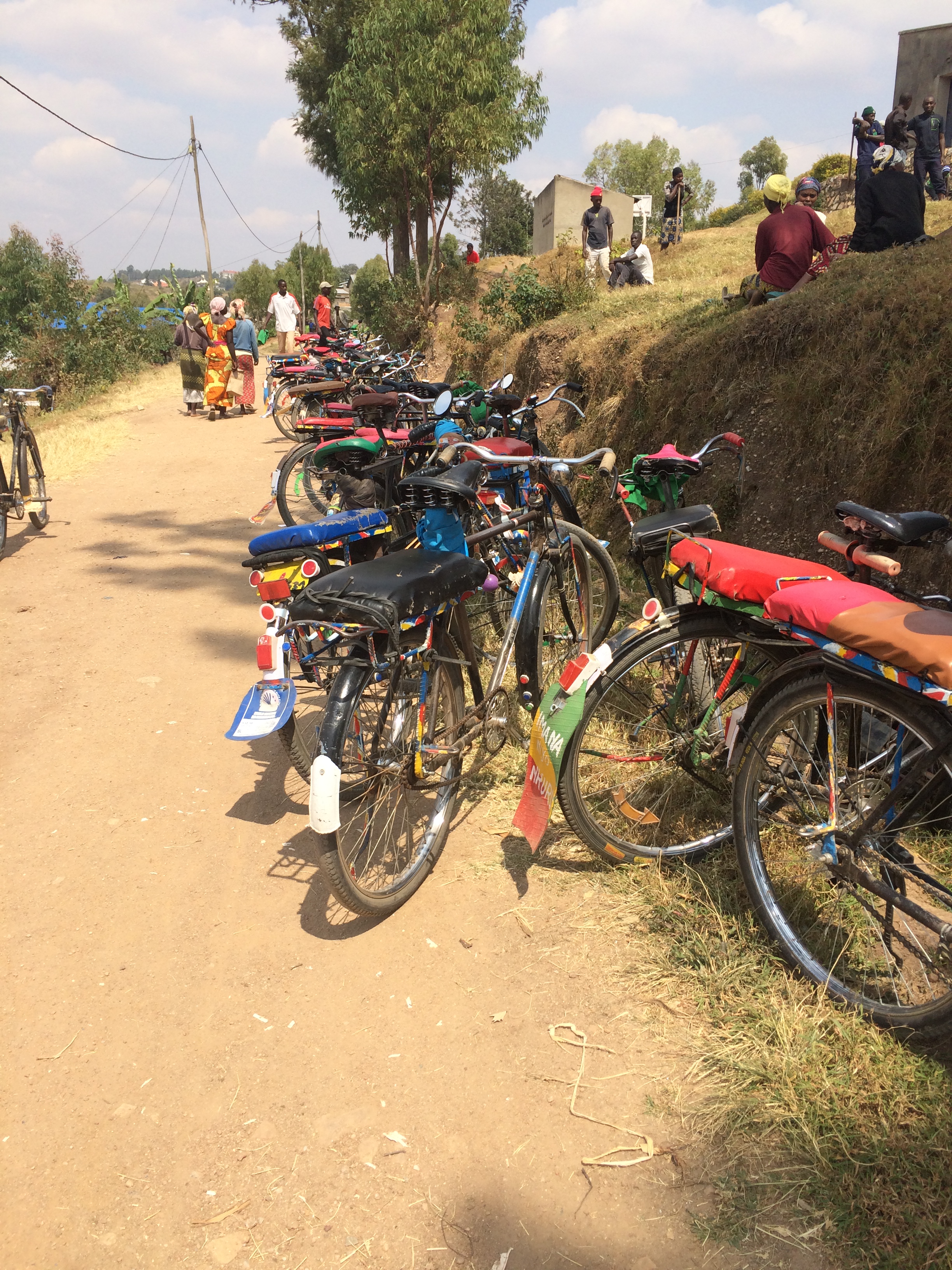
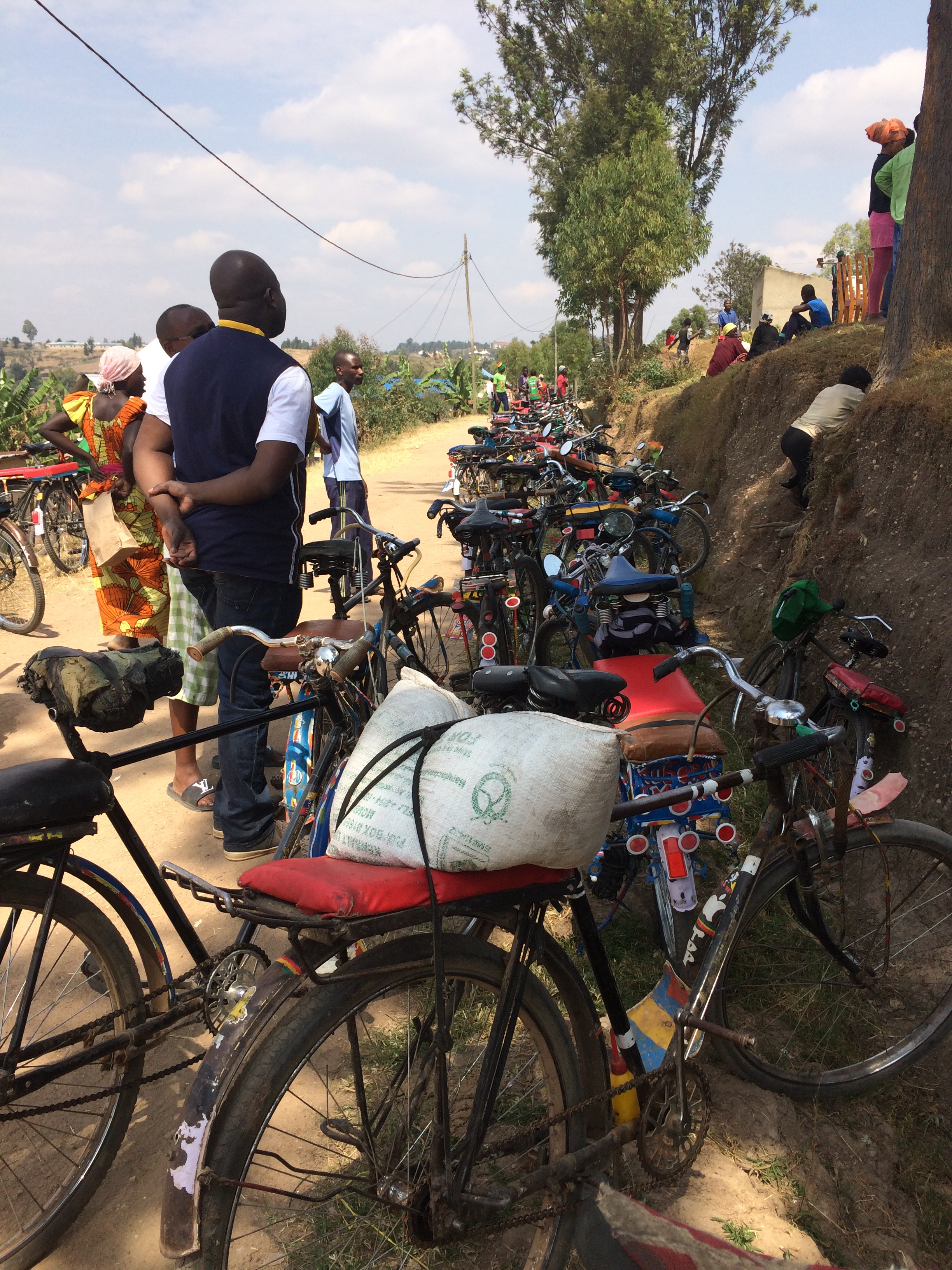
And, during holiday celebrations, the bicycle taxi guild proudly parades onto the field of the stadium to resounding cheers and clapping by everyone who appreciates their service to the community.


















Pat – Beautiful photos. You are going to have such culture shock when you return to the USA. Thanks for sending these. Gerri
>
LikeLike